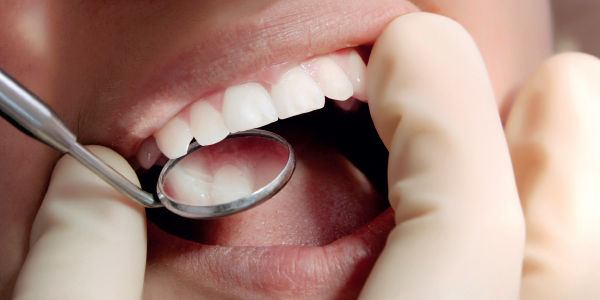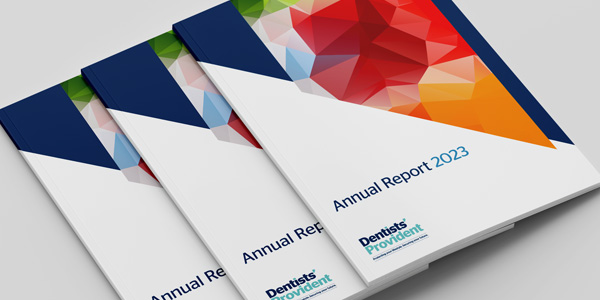
Owning a practice - whether with a partner, colleague or on your own, starting from scratch or buying an existing business - might be your dream career move. But having your own business is never just a job; it may become your main focus or your family’s entire livelihood and is a huge undertaking and responsibility for anyone, which could turn into the challenge of your professional life.
Introduction
Hygienists and therapists have been able to own their own practices since 2006, but it’s the removal of direct access six years ago that has made it easier to do. Of course it can, and should, be viewed as an extremely exciting venture. After all, you get to make it truly yours; choosing everything from the members of your team, the equipment and materials you use, to the branding, decor and even the colour of the walls.
However, if you’re not truly prepared for it, it can become more than you bargained for, taking up all your time, putting significant pressure on both you and your family and causing untold financial worries. That’s all before you consider potential staffing issues, patients’ clinical needs and expectations and the increasing regulatory compliance requirements you’ll need to tackle. All of this when dentistry is already widely considered to be a stressful profession should be carefully considered before you take the plunge.
Stressors
There is little research into the stress DCPs experience. The last report on stress and DCPs, published in 2011, showed that the stressors are not surprisingly similar to that of dentists’ experiences – for which there are more recent studies. In 2011 it was reported that over half of all respondents including DCPs said that running late caused them stress, with around a third of all respondents citing problems with achieving or maintaining a work life balance and conflicts with team members as further stressors.
In the most recent survey of the stress of dentists published in the BDJ in January this year, the main areas of stress were cited as being:
(A survey by Dental Protection last year supported this, indicating that 89% of respondents were worried about being sued by patients, and three quarters of those believed that had an impact on the way they practise, as well as their own welfare.)
Whilst these are all a concern and need to be addressed, what is evident, especially if you run your own practice, is that some of these issues are actually in your power to plan and mitigate for.
Purchasing a practice
Lis Hughes, MD at Frank Taylor, who help dental professionals buy practices said “The biggest issue we find for a DCP is raising finance, as most banks are still uncomfortable lending to hygienists and therapists unless they are in partnership with a dentist. Sometimes clients lose sight of the right practice for them and start to focus on buying any practice; a reputable dental specialist agency with an experienced and knowledgeable team can provide a full open service and will make sure the purchaser is steered in the right direction for them not just for a sale. On top of that, in our experience, for a seamless process with the least possible stress, good financial advice is key; to make sure the buyer can afford to buy and run a business and not drive themselves into debt. Goodwill is not tangible but can cost a lot of money so buyers need to be protected. Specialist legal advice is another key factor, there are many issues around dental practices, particularly where there is an element of NHS dentistry and buyers need a specialist lawyer who can put warranties and indemnities in place to protect them. It can be the most stressful time but also the most rewarding.“
Does technology help?
It might feel like a totally computerised practice with all the latest kit is the way to go and will make things faster and more efficient, but you need to ensure it works for you. It needs to support you, not cause you more stress by breaking down or being too complicated to use to its full capacity.
Dental technologies range from digital equipment, practice management software, patient record management and recall systems, to lasers, intra-oral scanners and 3D printers. Visiting dental exhibitions or searching online (starting with BDIA members), will show you the range of these technologies, as well as new areas that are continually being developed.
Carefully choosing a supplier who you can build a long term relationship with can help to give you the right support. Many companies offer financing, leasing and equipment repair services as part of their contracts. Sometimes this route may appear more expensive, but in the long run it could prove to be better value for money, and a more stress-free solution saving you and your team time, as it includes consultancy and training on the equipment as well as on-going repair and maintenance costs.
Running a practice
Christina Chatfield qualified as a hygienist in Dundee in 1982, and after 20 years in practice became disillusioned, so undertook a number of business roles for some of the biggest brands in our industry. Here she was lucky enough to receive good quality training, get experience organising meetings with key opinion leaders and make some great contacts. Christina said “It was during my time working for these companies that I decided I wanted to start my own practice, I also met my original business partner at the time. What was important to me was complete autonomy and total clinical freedom to do my treatment plans. In 1994 I made the move to Brighton with my three young children, so I had a lot on my plate already.”
When Christina opened her practice in September 2007 things were a lot different to now. For a start direct access hadn’t come in, and neither had the CQC, and most organisations didn’t support a hygienist setting up as it was so rare. On top of that she decided to open a squat practice so she had a lot on her plate! Christina said “You can’t underestimate how hard it is to do but there are lots of things you can do to minimise the stress, having great contacts and not being afraid to ask for help is one, I always give my suppliers the time because I know I will always need them. Having a business management consultant has helped as I’m changing software supplier at the moment so it is efficient at recalling patients as that can save a lot of time and money.”
Christina continued “It’s all the little things you have to think about, and unpredictable things you have to deal with, such as VAT changes which hit me hard and now with Brexit, so it’s good to be organised. Also for me I think you can reduce stress by having happy team members who feel you value them, I have a full complement now, every hygienist and dentist has a nurse and I include them in business decisions, by doing this I am continually reinvesting in the practice, team and equipment, so moving forward successfully. A hygienist planning on setting up a practice spent time with me recently and the advice I gave her was to find an existing practice rather than a squat and change it from the inside out, be aware of all the costs and concentrate on cash flow, staff management, compliance with CQC and marketing.”
In terms of the stress of running her practice Christina said “Yes it is stressful, and I had an acrimonious break up with my business partner, so had to work out how I was going to do it single handed, so having lots of people around you to support you is vital. I ended up having to go to my GP on New Year’s Eve a couple of years ago but decided I wasn’t going to just take medication or let it beat me. I now do boot camp every morning and cold water swimming as well as a lot of charity walks, they all give me balance, and if I didn’t run my own business I wouldn’t be able to take the time off to do them.”
She finished by saying “Through all the hassle and all the stress I wouldn’t change a thing, I have 60-80 new patients a month walking through the door, but step back every day and feel so proud and relaxed its mine."
To do or not to do
The overriding response from many dentists or DCPs who have bitten the bullet of practice ownership is … I still wouldn’t have it any other way. So here are some tips to help you avoid unnecessary stress so you can get on enjoying the positives of an amazing life-changing experience.
Step back and decide what’s right for you and your future career path, but remember to look after yourself as you are the most important asset you have. Think about how you will combat unnecessary stress to have a smooth-running and exciting venture that is all yours.
References available on request.
This article is intended for general information only, it is not designed to provide financial, health or other advice, nor is it intended to make any recommendations regarding the suitability of any plans for any particular individual. Nothing in this article constitutes an invitation, inducement or offer to subscribe for membership or additional benefits of Dentists’ Provident.
No responsibility or liability is assumed by Dentists’ Provident or any copyright owner for any injury or damage to persons or property as a consequence of the reading, use or interpretation of its published content. Whilst every effort is made to ensure accuracy, Dentists’ Provident, the authors, Editors and copyright owners cannot be held responsible for published errors.
Dentists’ Provident exercises editorial control only over material published and/or produced by it. No responsibility or liability is assumed by Dentists’ Provident for any articles produced or reproduced in third party publications and/or websites.
The views or opinions expressed do not necessarily reflect views of Dentists’ Provident or copyright owners. Inclusion of any advertising material does not constitute a guarantee or endorsement of any products or services or the claims made by any manufacturer.
If you have any questions, please contact our member services consultants by emailing press@dentistsprovident.co.uk or calling 020 7400 5710.
If you have any questions, please contact our member services consultants by emailing
memberservices@dentistsprovident.co.uk or calling 020 7400 5710.

Our 2024 Annual General Meeting will be held at 91-94 Saffron Hill, London, EC1N 8QP on Friday 24th Ma…
Read more
The 2023 annual report from Dentists’ Provident, a leading income protection provider for dental profe…
Read more
Our next exhibition is the British Dental Conference & Dentistry Show in May, where we look forward to meeting anyone interested in becoming a member or members wanting to discuss their plans.